- Overview
- Causes, Risks & Prevention
- Symptoms & Types
- Tests & Diagnosis
- Your Cancer Care Team
- Treatment & Side Effects
- Treatment Support
- Living With
- Remission & Recurrence
- Support & Resources
- Appointment Prep
- View Full Guide
Guide to Liver Cancer

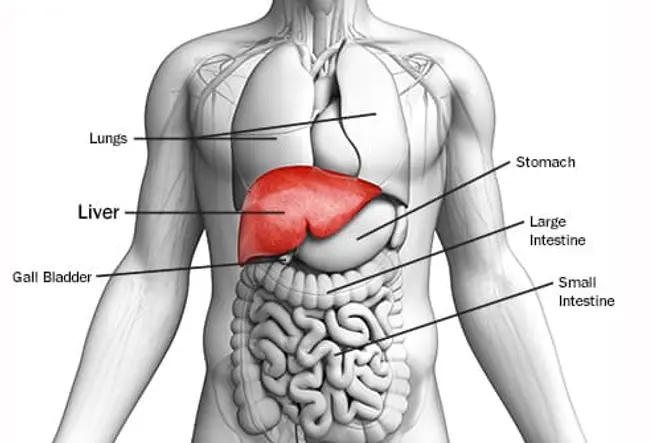
How Does It Happen?
Your liver does a lot for you, like filter your blood and break down food. It’s one of your largest -- and most important -- organs. When you have liver cancer, some cells there grow out of control and form a tumor. That can affect how well your liver works.

Symptoms
Most people don’t notice any signs of liver cancer early on. When they do show up, you may:
- Feel full easily or not want to eat
- Have a lump below your right rib cage
- Feel pain on the upper right side of your belly or near your right shoulder
- Have an upset stomach
- Have swelling in your belly
- Feel tired and weak
- Lose weight
- Have white, chalky poop and dark pee
- Notice a yellowish color in your skin and the whites of your eyes
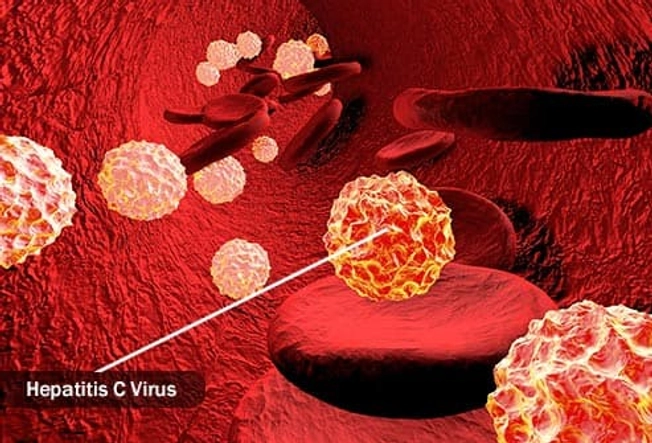
If You Have Liver Disease
Certain diseases can make you more likely to get liver cancer, including:
- Long-term hepatitis B or C -- viruses that attack and damage your liver
- Cirrhosis -- liver damage that can make scar tissue replace healthy tissue
- Nonalcoholic fatty liver disease -- a buildup of fat in your liver
- Liver diseases you’re born with, like hereditary hemochromatosis (when excess iron is stored in your liver and other organs)
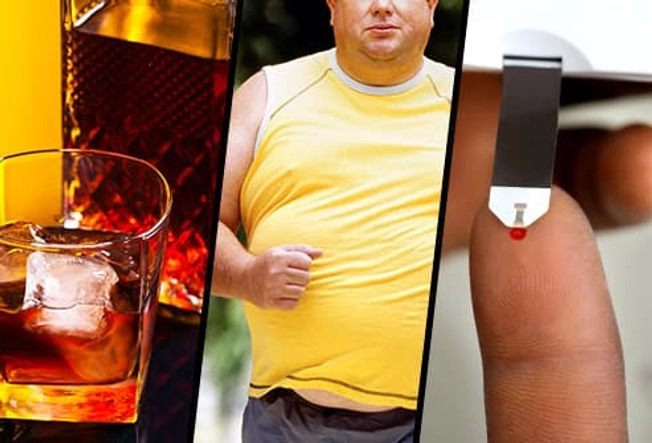
Alcohol, Obesity, Diabetes Raise Your Odds
One main cause of cirrhosis in the U.S. is drinking large amounts of alcohol over many years. Since cirrhosis can make you more likely to have liver cancer, that means drinking heavily can make you more likely to get it. And if you’re very overweight or have diabetes or a condition called metabolic syndrome, you’re at higher risk of getting nonalcoholic fatty liver disease, which can lead to liver cancer, too.
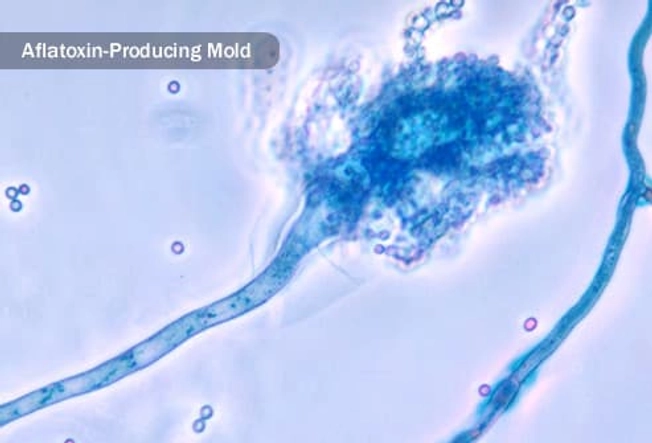
Toxins Raise Your Chances
Some of these can cause liver cancer, including:
- Aflatoxins: poisons made by molds that can grow on crops like corn and peanuts if they’re not stored the right way
- Arsenic: a chemical that’s sometimes in well water
- Thorium dioxide: a substance once used for some kinds of X-rays (it’s not used anymore)
- Vinyl chloride: a chemical used to make some kinds of plastics
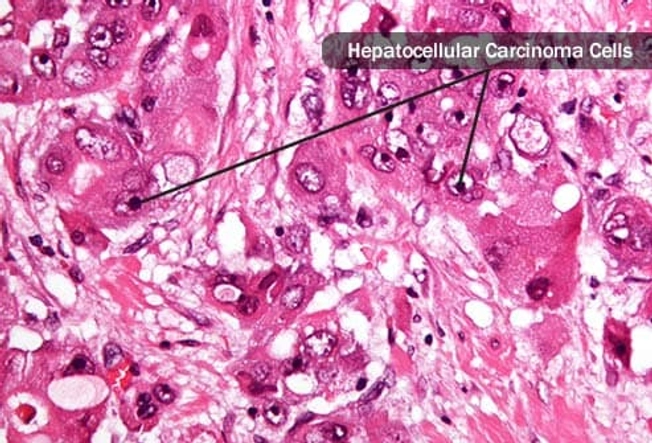
Most Common Type
Hepatocellular carcinoma (HCC) happens in the main cells of your liver, called hepatocytes. HCC usually causes one tumor that grows larger over time. But if you have both cirrhosis and HCC, you’re likely to have many small tumors spread throughout your liver.
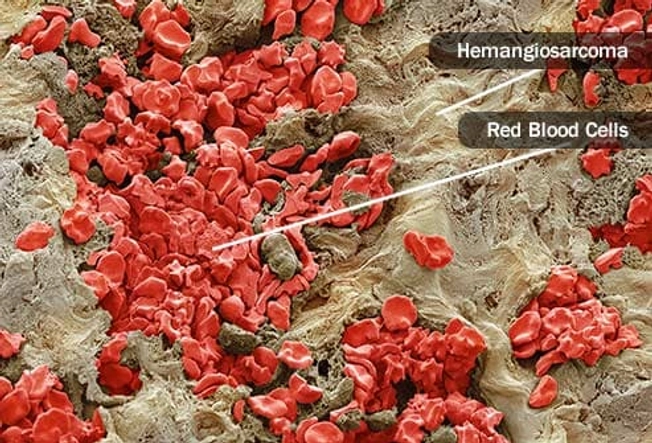
Other Types
Bile duct cancer happens in the tubes that carry bile -- a fluid that breaks down foods -- out of your liver. This is the second most common kind of liver cancer. Angiosarcoma and hemangiosarcoma are cancers found in your liver’s blood vessels. Both are rare and sometimes caused by toxins. Hepatoblastoma is a very rare cancer that happens mostly in children under age 4.
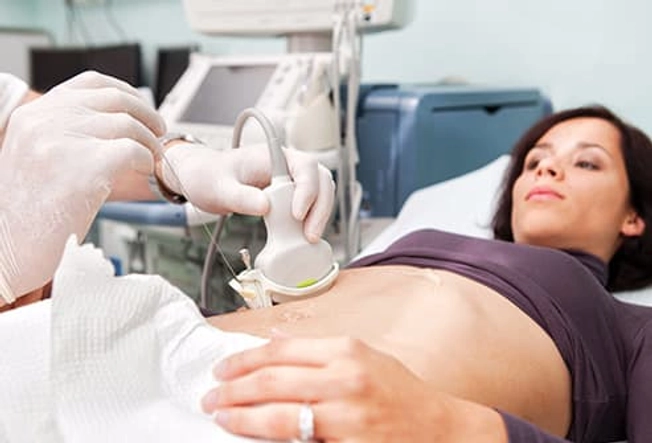
Tests
If your doctor thinks you might have liver cancer, they may recommend:
- Biopsy: They’ll take a small sample of your liver to test for cancer.
- Blood tests: These check how well your liver’s working and look for things in your blood that may be signs of cancer, called tumor markers.
- Imaging test: This might be an ultrasound, CT scan, MRI, or an angiogram, which is a kind of X-ray that looks at your blood vessels.
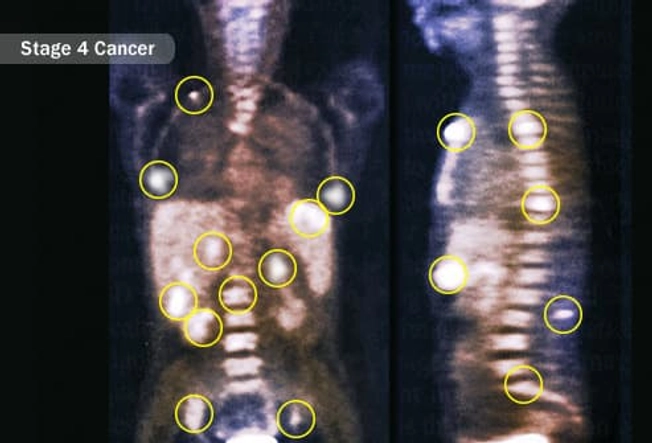
Stages
These tell you how far your cancer has spread:
- Stage I: One tumor that hasn’t spread anywhere else
- Stage II: One tumor that’s spread into blood vessels, or more than one tumor, but all smaller than 2 inches
- Stage III: One tumor that’s spread to major blood vessels or nearby organs, or more than one tumor and at least one of them is larger than 2 inches
- Stage IV: The cancer has spread to other body parts.

Other Ways to Stage Liver Cancer
Most people with liver cancer also have liver damage, so your doctor may use a staging system that also tells you how healthy your liver is. One that’s used often is the Barcelona Clinic Liver Cancer (BCLC) system. Its stages are 0, A, B, C, and D. Typically, C and D can’t be cured, but treatment can help with symptoms.
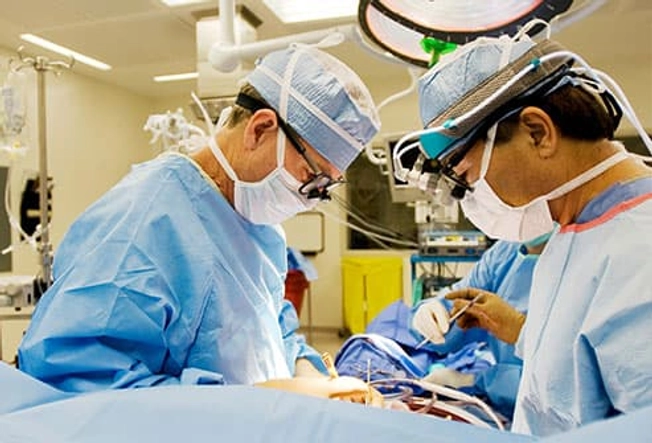
Treatment: Surgery or Transplant
Treatment for liver cancer depends on the stage as well as your age, overall health, and the health of your liver. If the cancer hasn’t spread and you don’t have other liver problems, you may have:
- Surgery to remove the tumor
- A liver transplant, where you get a new liver from a donor. This isn’t common.
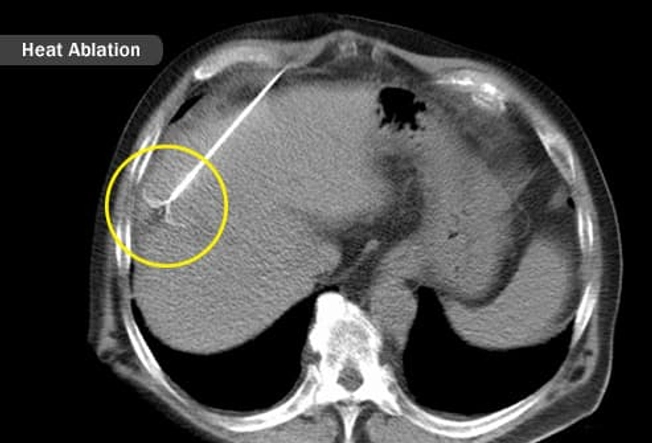
Treatment: Ablation Therapy
This tries to kill cancer cells in different ways:
- Alcohol: Your doctor puts pure alcohol into the tumors to destroy them.
- Freezing: Your doctor uses a thin, blunt instrument called a probe to freeze and kill tumor cells.
- Heat: Microwaves can make enough heat to destroy tumors.
- Electrical pulses: Bursts of electricity kill cancer cells (this is still being tested).
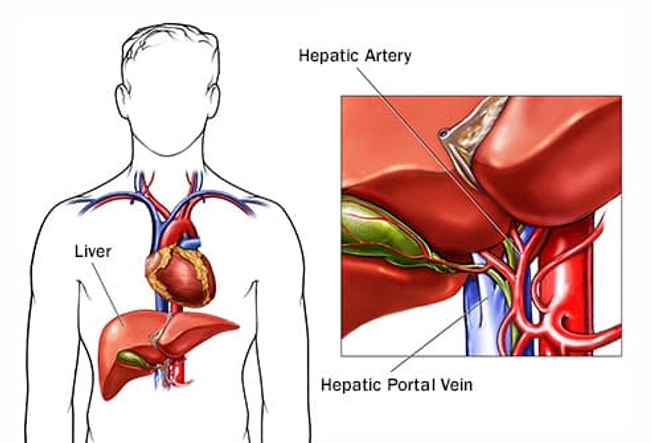
Treatment: Embolization Therapy
Your liver gets blood from two main blood vessels. Tumors usually use just one: the hepatic artery. With embolization therapy, a thin tube goes into your thigh and to that artery. Your doctor puts a substance into the tube to block blood flow through there and starve the tumor of nutrients. (Your liver will still get blood through the other blood vessel.) Chemotherapy drugs or radiation beads also may be put in through the tube.
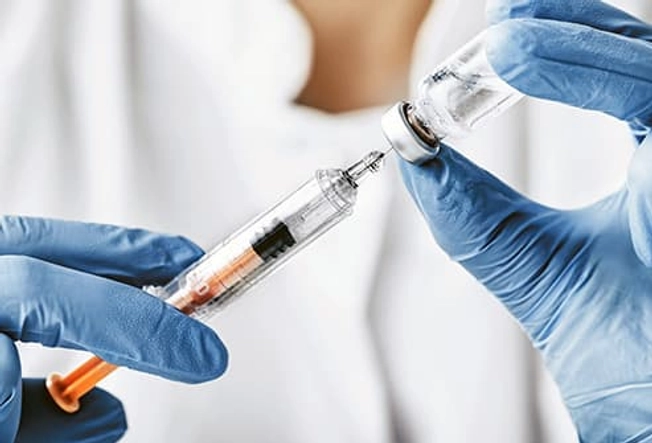
Treatment: Targeted Therapy
Cancer cells work differently than normal cells. Targeted therapy uses drugs designed to attack cancer cells based on those differences. This may keep tumors from making blood vessels they need to survive, or it may stop tumor cells from dividing so they can’t grow.

Can You Prevent It?
No, but you can lower your chances of getting liver cancer:
- Get the hepatitis B vaccine and get tested for Hepatitis C.
- Get medical attention if you have chronic hepatitis.
- Stay a healthy weight through the food you eat and exercise.
- Limit the amount of alcohol you drink: up to one a day for women, two for men.
- Don’t use intravenous (IV) drugs -- if you do, use clean needles.
- Get tattoos and piercings only at safe, clean shops.
- Practice safe sex.